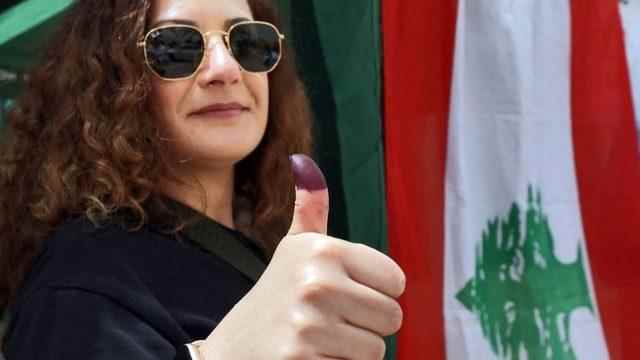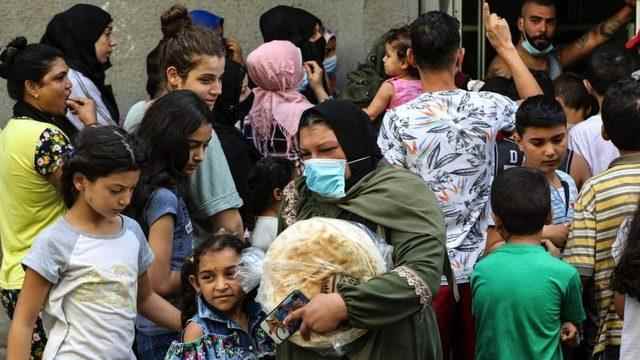According to the World Bank, the Lebanese economy is facing one of the worst economic crises a country has experienced since the 1850s.
“Many people work three, four or five jobs just to meet their basic needs,” says Nathalie Abou Harb, 23, a first-time voter from Beirut.
Reminding that the minimum wage is 800 thousand Lebanese liras, while a tank of gasoline is filled to 500 thousand Lebanese liras, Nathalie says, “If you only earn the minimum wage, you cannot fill your car fully twice.”
Even before the coronavirus pandemic, the country’s economy was heading for a collapse.
According to the International Monetary Fund (IMF) statement in October 2019, about a third of the population lived below the poverty line, unemployment was almost 25 percent, and the country was struggling to cope with low growth and rising inflation.
The public was outraged at the government’s failure to provide even the most basic necessities, such as daily power cuts, scarcity of drinking water, limited social health services, poor internet connectivity.
“MIDDLE CLASS LEFT”
In October 2019, the government’s plans to raise taxes on fuel and services like WhatsApp intensified mass protests against the mismanaged economy. These protests resulted in the government’s resignation. However, as L’Orient-Le Jour, one of the country’s leading newspapers, stated, the protests were not just “about the WhatsApp tax.”
People complained about unsustainable debt management and lack of practical solutions to economic problems.
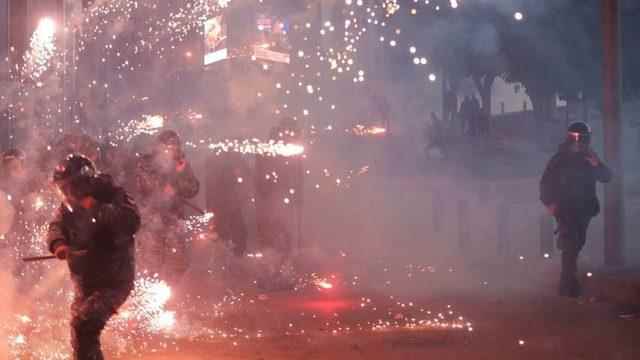
Many blamed the ruling elites for years, who had taken over the country’s political scene, who cared about their own well-being rather than the country’s problems.
The pandemic dealt another blow to the economy. The decrease in tourism by nearly 70 percent was one of the biggest factors.
When the economy reopened in 2021, the currency depreciation led to higher prices on food, fuel and pharmaceutical imports. Inflation increased, famines occurred.
Long queues began to form at gas and tube stations, and even at bakeries. Power cuts and rising prices also reduced bread production.
Nathalie says that basic necessities are either out of reach or are very expensive today.
“Poor people still get paid in Lebanese liras, which have depreciated considerably, while the rich get paid in dollars or get dollars from abroad. There is no middle class anymore.”
EXPLOSION IN BEIRUT PORT
On August 4, 2020, at least 218 people were killed and more than 7,000 injured as a result of the explosion of ammonium nitrate stored in the Port of Beirut. About 300,000 people were left homeless.
The public says the government “negligent” in what happened and accuses the politicians of “corruption”.
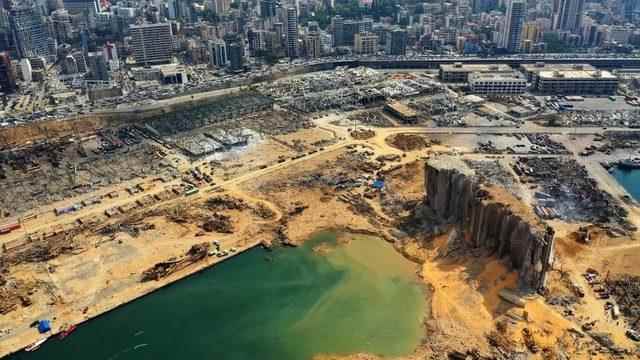
The consequences of these crises devastated the economy. Calls for political change began to rise inside and outside the country.
“There have been the same political parties in government and administration for over 50 years. They had a chance to prove themselves. They have to admit that they failed,” says Nathalie.
According to experts, another problem of Lebanese politics is the confessionism system it maintains. This means that the number of seats in the parliament is determined according to demographic density for the representation of different religious communities in the country.
There are officially 18 religious communities in Lebanon, namely Muslims, Christians, Druze and Jews. The 128 seats in the parliament are divided equally among Muslims, including Christians and Druze.
Ghia Assaad, of the opposition group Liqaa Tishreen, says the new parties “want a non-confessional move to enter parliament for the first time”.
Nathalie states that she does not want new groups and parties to share in this way anymore.
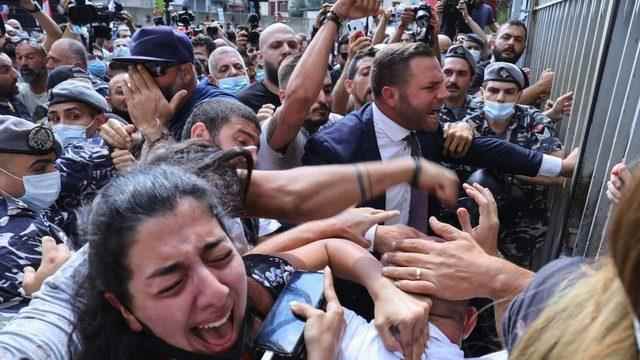
YOUNG VOTERS WANT ‘REVENGE’
More than 225,000 people registered to vote abroad. This number is three times what it was in 2018.
The votes of young voters are very important in these elections. Nathalie says, “Young people realized that their parents and grandparents couldn’t make the right political choices.”
“They want revenge: to take revenge on those who are blamed for the Beirut explosion, who destroyed the country economically, who made us wait in long lines at gas stations, markets and bakeries.
“We know we won’t be able to replace all the representatives in this election. Maybe we won’t be able to replace more than 10 people in parliament. But the process is not about changing things now. People are looking at the big picture, thinking about their future and their children’s future.”
